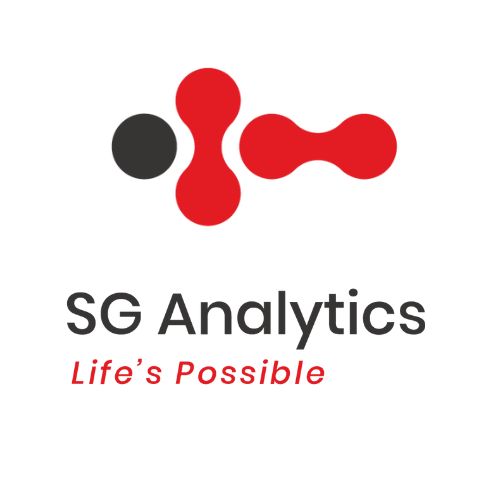Insurance companies are no strangers to the growing popularity of enterprise-focused artificial intelligence (AI) agents that will likely enhance corporate operations and stakeholder experiences in all industries. Since insurers proactively seek new methods to increase efficiency and better manage risk, agentic AI is poised to assist them in achieving those objectives. After all, new artificial intelligence models significantly differ from conventional AI systems. This post will offer a comprehensive account of the transformative benefits of agentic AI solutions in the insurance industry.
Agentic AI in the Insurance Industry
Agentic AI involves highly optimized artificial intelligence systems demonstrating the capabilities necessary to make independent decisions to help users achieve complex, industry-specific goals. An AI agent can learn from real-world scenarios. It can execute flexible, contextually valid activities without human intervention.
The underlying deep learning algorithms govern the strengths of AI agents. Their training dataset must be free of biases to help insurance companies enjoy AI’s benefits across all decision-making processes. Accordingly, insurers must develop adequate IT infrastructure to analyze multiple data assets. The utilized platforms must also comply with relevant regulations. Evolving customer expectations require constant adaptation.
The industry seeks AI agents and ML models to streamline context detection and allow for accelerated insurance claim processing. Other applications have much to do with how an insurer examines risks to furnish premium calculations. Furthermore, customizing insurance policies for better engagement will involve employing agentic AI consumer education, behavioral predictions, and real-time customer support. These advancements ensure operational efficiency. They make various insurance policies more accessible and transparent.
Read more: The Ethical Implications of Agentic AI in Financial Services
The Difference Between Authentic AI Agents and Traditional Automated Systems
Remember, standard process automation methods would have pre-programmed rules. They were also restrictive due to storage scaling issues and data handling limitations. On the other hand, novel application software can leverage hybrid cloud environments to analyze insurer-insured relationships. They can swiftly synchronize on-premise workstations’ records with remote, scalable storage spaces. Besides, their AI agents can function more independently.
This progress implies that computing systems are more competent in adjusting their data tasks based on new conditions, compliance mandates, or company policies. They can make nuanced decisions vital to insurance claim assessments and capital management. As a result, insurance organizations can confidently utilize agentic AI to enhance fraud detection and personalize customer offerings. That indicates an admirable improvement over the old automated processing techniques.
Read more: Agentic Payments: The Future of Smart Transactions
Benefits of Agentic AI in the Insurance Industry
1. Enhancing Claims Processing with AI
Traditional claims handling is often time-consuming. It has involved manual reviews, extensive paperwork, and multifaceted investigations. With agentic AI, businesses offering insurance policies can automate those processes. Doing so will effectively reduce the time required to settle claims. AI-powered bots can examine claim reports and review policyholder information. In suitable cases, assessing property damages using image recognition technology can expedite settlements without compromising accuracy. Some of the top-rated property and casualty insurance software integrated with AI capabilities plays a crucial role in streamlining these workflows, ensuring faster and more accurate claims management.
Companies like Allstate and Geico have already embraced AI-driven claims processing tools to enhance efficiency. For example, artificial intelligence applications in the insurance industry, such as advanced computer vision and forensics simulations, enable insurers to evaluate car accident damages. This activity can proceed almost instantly through smartphone photos and dedicated secure applications.
The above approach effectively eliminates the need for multi-step, resource-consuming assessments. It can also further reduce insurance fraud risks. As agentic AI evolves, insurers will offer faster, more accurate claims resolutions. Therefore, the insured parties will exhibit higher customer satisfaction. At the same time, reductions in operational costs will ensure better margins.
2. Improving Insurance Fraud Detection and Risk Assessment with Agentic AI
Fraud is an inevitable challenge that adversely impacts the insurance industry and keeps costing billions of dollars year after year. Traditionally, fraud detection methods have relied on deliberate audits and rule-based algorithms. Although modern analytical techniques have improved reliability, they might be ineffective at identifying new, unconventional fraud schemes. However, agentic AI can proactively detect anomalies. Once the dedicated AI agent finds suspicious patterns, it will flag potentially fraudulent claims immediately. Therefore, insurance companies can quickly mitigate the threat.
AI and ML in the insurance industry are excellent for fraud detection because they can scan massive datasets depicting policyholder histories. Today, companies like Zurich Insurance have over 200 use cases for AI integration. Meanwhile, AXA uses AI-driven fraud detection tools to identify patterns that human analysts might miss.
For instance, agentic AI will cross-reference medical claims with independent databases. Doing so assists in detecting inconsistencies. Such use cases underscore the transformative benefits of leveraging agentic AI to prevent approving ineligible payouts. This proactive approach serves two objectives. First, it reduces the financial losses that an insurance provider might suffer from. Second, it also improves trust between insurers and the insured customers.
Read more: The Future of BFSI: How Agentic AI is Reshaping the Industry
3. Personalizing Insurance Policies and Improving Customer Education with AI
Modern customers value more personalized experiences. Their expectations have also impacted insurance enrollment success, suggesting insurance providers utilize new tech for policy customizations. Agentic AI can guide each insurance seeker to understand how policy terms differ between distinct offerings.
A properly developed AI agent will also enable insurance companies to provide real-time customer support without burning out helpdesk representatives. That agent will likely surpass obsolete, repetitive chatbots that have a few fixed responses to offer. As a result, insurance-related consumer queries become answerable via more dynamic machine-generated responses. The underlying large language models (LLMs) are to be appreciated for such advancements.
Think of the Insurtech company Lemonade. It uses agentic AI to educate insurance customers about policy terms, the claims filing process, and payment handling. Lemonade’s virtual agents learn from each interaction, continuously improving their ability to anticipate customer needs.
4. Better Incorporate Modern Tech for Impartial Premium Determination
Artificial intelligence tools optimized for the insurance industry are also capable of offering dynamic pricing models based on real-time behavioral data for personalization strategies. Telematics auto insurance, for instance, leverages GPS tracking and driving behavior insights, letting AI agents adjust premium calculations to reward responsible car owners.
In 2022, Root Insurance partnered with Tractable to embrace accident-related AI-led insights for fairer customer pricing models and accelerate material damage claims settlement. Likewise, more insurance technology and policy providers have initiated similar strategic collaborations.
Read more – Top Agentic AI Companies
Regulatory Compliance and Ethical Considerations
Given the discussion so far, it is clear that AI and ML offer tremendous benefits in the insurance industry. Unfortunately, insurance providers and other stakeholders must address several regulatory and ethical challenges for the broader adoption of artificial intelligence assistants. Compliance with region-specific data privacy acts is crucial for insurers exploring AI agents’ role in risk evaluation and claim settlement.
Related responsibilities involve ensuring that AI-driven decisions remain transparent. Stakeholders must develop a solid understanding of the logic that governs agentic AI responses. Otherwise, integrating artificial intelligence might backfire. This precaution necessitates deliberate bias identification and reduction efforts across data quality assurance and analytics activities.
Today, global regulators are increasingly scrutinizing insurance industry firms that rely on extensive data mining and AI-assisted decisions. They do not want stakeholders to engage in discriminatory pricing, such as unfair claim denials, data misuse, and under-reporting of data breach incidents.
In turn, insurers must adopt best practices. They can prioritize explainable AI (XAI) development to ensure that automated decisions are justifiable. Non-discriminatory, ethical artificial intelligence frameworks will further advocate for responsible AI deployment. So, insurance companies adopting them will correctly demonstrate accountability in decision-making processes. After all, insurers must balance innovation race with compliance excellence to maintain consumer trust.
Read more: Trusting in Trust Architectures – Raising Privacy Questions and the Way Forward
The Role of AI in Insurance Underwriting and Risk Prediction
Underwriting is a conventionally complex process that demands insurance companies correctly examine risks and assign policy premiums. These premiums must be financially viable for insurers. Traditional underwriting methods have relied on historical data, actuarial models, and manual analysis. Additionally, AI and ML introduce predictive analytics to help the insurance industry enhance its underwriting approaches, cutting time spent on risk estimation.
Agentic AI demonstrates that it learns from alternative data sources. This feature, combined with IoT devices, social media insights, and economic indicators, allows for a comprehensive insurance underwriting decision.
Besides, AI agents can deliver multilingual assistance, like Magnum by Swiss Re, which drives underwriting performance in more than 32 markets in 25+ languages. Similar artificial intelligence integrations drive better straight-through processing (STP) rates. Consequently, competitive gains are secured.
Conclusion – AI in Insurance Industry
Agentic AI provides multiple transformative benefits, empowering insurance companies to modernize claims processing and fraud detection. Given the rising demand for automated customer personalization and advanced risk assessment in this industry, every stakeholder eager to simplify predictive analyses or policyholder behavior insights must study and implement AI agents.
Travel insurance selection or proving the legitimacy of accidental events must proceed via agentic AI, as it eliminates the need to waste hours waiting for human representatives and processing documents. Likewise, artificial intelligence agents can educate the insured about health insurance eligibility criteria and coverage specifics.
Still, ensuring unbiased results and curbing potential misuse of AI tools remains a challenge requiring multi-stakeholder coordination.
Consider the contemporary situation. Although expanding alternative data use cases attracts everyone, not all data is trustworthy or relevant. That is why expert oversight is more vital than ever to develop, train, test, optimize, and upgrade agentic AI solutions.
About SG Analytics
SG Analytics (SGA) is a leading agentic AI solutions provider, equipping enterprises in BFSI, capital markets, TMT (technology, media, and telecom), and other emerging industries with context-aware, scalable autonomy. SGA’s AI agent integrations facilitate intelligent workflows, empowering client firms to adopt human-in-the-loop work environments with unmatched efficiency gains and significant cost reductions.
A Great Place to Work® certified company, SG Analytics has a team of over 1,600 professionals across the USA, UK, Switzerland, Poland, and India. Recognized by Gartner, Everest Group, ISG, and featured in the Deloitte Technology Fast 50 India 2024 and Financial Times & Statista APAC 2025 High Growth Companies, SGA delivers impactful AI agents that never stop learning and improving.

